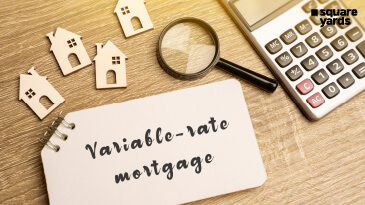As perceptible as the methodology of buying a home is, the process can be draining in many ways. While the D-day would be approaching, you might be obligated to apply for a mortgage as a qualified buyer. Stepping through property investments, one of the most important factors is the credit score for a mortgage. Apart from this, there are other miscellaneous factors that include employment status, current income, and your down payment size.
It is also important to note that a better credit score would help you get approved for a mortgage. A credit score of 680 or above would also reward you with a lower interest rate, which makes you one of the most eligible holders. In order to be a qualified mortgage holder with multiple lenders, your credit score should be between 600 and 680. If your credit score lies below 600, you should take some measures before you are applying for a mortgage. Here is a brief layout to understand the relationship between credit score and mortgage rating.
Lender’s Perspective about Credit Scores
Lenders ponder upon your credit score to get a better understanding of the risks involved with your mortgage and you as a borrower. It is important for the lenders to have complete faith in the borrower before lending a considerable amount of money in the form of a mortgage. Your credit score not only helps a lender with the mortgage approval but also aids in underlining the appropriate interest rate.
If you are someone with a high credit score, lenders might perceive you as a less-risky borrower. Every investment made comes with a certain risk, but with a lower credit score, this risk evolves and you might default on your mortgage. It is important to note that the higher the mortgage interest rate is, the lower is the credit score. So, if you are someone who may have defaulted on your mortgage, the chances of getting the application approved are lesser.
Minimum Credit Score for a Mortgage
The minimum credit score requirement for an issued mortgage is 600 and these credit scores vary from lender to lender. In the July of 2021, the CMHC (Canadian Mortgage and Housing Corporation) altered their minimum credit score for mortgage insurance from 680 to 600.
The Credit score for a mortgage in Canada basically falls in five categories, which involves a vast quality bandwidth:
- Poor: 300-574
- Below Average: 575-659
- Fair: 660-712
- Good: 713-740
- Excellent: 741-900
Every lender will be coming with specific interest rates and credit score requirements. In order to attain the best interest rates from the mortgage brokers, you should fixate on a credit score of 680 or above. Every time you adjust your credit score, the lenders adjust your score by twenty points. This Credit score for a mortgage can either be lower or higher.
If your credit score lies in the range of 600 and 680, then you might be needing a higher down payment (above 20 per cent). This would result in you entrancing lenders offering higher interest rates and would also give you the opportunity to work with some alternative lenders.
Evaluation of Your Credit Score
Traditionally, there are five denoted factors that refer to the information listed on the credit report. These factors are responsible for deducing your credit score. Every element pertains to the overall score and the factors below underline the effects made by each factor.
-
Credit checks (10%)
It is important to note that when multiple credit checks are listed on your report, it can alter your credit score. The formal credit invites lenders when they are applying for financial products.
-
Credit Mix (10%)
This basically refers to multiple credits accounts that you have in function. The lenders are often interested in seeing the competency of the borrower where they can handle at least two different credit accounts (these can be a cell phone plan and a credit card).
-
Payment history(35%)
This basically refers to the record that is made by the payments executed through your loans, credit cards and other accounts on time. Any missed payments would appear on the credit report and can lay a negative impact on your credit score.
-
Credit History(15%)
This basically broaches to the various credit accounts and their age. Lenders are more optimistic about working with clients that come with concrete credit history and good payment behavior.
-
Credit Utilization(30%)
This is the ratio of the credit that you are using versus the total available credit limit which has been provided to you. A high credit rate can affect your credit score negatively.
The Credit Utilization Rate
The credit utilization and payment rate make up for more than half of your credit score. Focusing on these areas when you are looking forward to improving your credit score becomes of prime importance.
-
Improving Credit Score for a Mortgage before Getting One
Are you wishing to maximize your credit in order to get qualified for a good mortgage rate? Listed below are some tips that you should underline in order to improve your credit score before applying for a mortgage rating:
-
Avoiding late payments or arranging plans for late bill payments
Any late payments can show up on your credit report for almost six years. The longer you keep your bills unpaid, the more damage it calls for. If you are someone who is standing far away from making late payments, your mortgage credit score is definitely safe. However, on the other hand, with an overdue bill, you can communicate with your service provider to layout a payment plan.
-
Make sure the bills are paid on time
Making timely bill payments are essential for maintaining a good credit rating. Try setting reminders or maintaining a calendar that pings you as a reminder to make timely payments. You can also communicate with your bank and have them set up some automated system that pays the bills through your credit card or bank account.
-
Reducing your rate of credit utilization by paying the credit card balances
Before initiating credit card balances at a comparatively low credit limit, the rule is to maintain the credit utilization rate below or at 30%. If you are currently carrying intemperate balances on your credit cards, paying off your credit card balances would help you optimize your credit score. You should also avoid making bulky purchases via your credit card if you’re starting your hunt.
-
Increasing your credit card limit
The credit limit on your card would help you reduce the utilization rate of your credit score. The important factor is to keep a balance while the limit is being processed. This can be explained with the help of an example:
If your credit card limit is between $3000 to $4000 while the credit card balance is $1000, the utilization would go down from 33% to 25%. However, it can be captivating to rampage while you increase the credit limit. This assures the credit utilisation rate and its constant figurative.
If you are someone who wants to invest in a new home, then make sure that your credit score is high enough, before you apply for mortgage approval. It is also important to note that a score of more than 680 would help you maximize your chances to be approved and would help you lock in the best deals in interest rates.
If your credit score is less than 600, you can always buy some time to maintain a good score and reduce your debt. However, looking for mortgages with bad credits would limit your options and as tempting as it sounds to work with a private lender, you would have to face high fees. You can also accommodate a co-signer with an optimal credit to your mortgage (someone with more good credit), in order to upscale your credit.
Conclusion
Credit scores are something to take note of while you are stepping into the world of mortgaging, lending or selling. With a better credit score, not only do you get the added benefits, but also it gives you the freedom to maintain a creditable image in the real estate market.
You May Also Read
FAQs
A good credit score range includes a range of 700-749. However, 750 to 850 is considered to be a good credit score. People with this score are at a podium to qualify for the best mortgage possible. This also includes auto loans, credit cards and other things.
A $250,000 mortgage with an interest rate of 4.5% and a tenure of thirty years. With a downpayment of 10,000, one would require an annual income of $63,868 to qualify for the loan.
You can go for a down payment of 20% of your home’s value. This clearly implies that you can go with a house worth $3000, with an amount of $60,000. You’ll have to pay around 3%-5% of a home’s value in closing costs. For a $300,000 house, you’ll require $9000 to $15,000.














